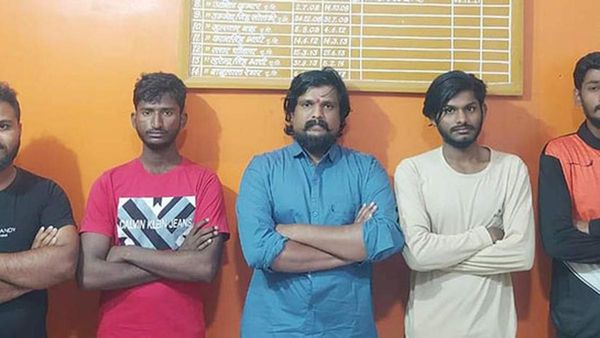“The Mitakshara is not just a mere compilation of rules and statutes but it is a philosophical and social system that played a fundamental role in shaping familial and societal structures of regions of India,” judge of the High Court of Karnataka E.S. Indiresh has said.
He was speaking at the valedictory session of the one-day national conference on “Mitakshara: Applied Science of Bharatiya Jurisprudence” at the Central University of Karnataka (CUK) here on Saturday evening.
The event was organised jointly by the School of Legal Jurisprudence Studies, Central University, and Vijnaneshwara Pratisthan Trust, Kalaburagi, in memory of the former Chief Justice of Punjab and Haryana High Court and founder of the Vijnaneshwara Prathisthana Trust M. Rama Jois.
“The influence of Mitakshara written by Vijnaneshwara on the landscape of Hindu personal law and its interpretation of law still resonates in the modern legal system. Its rich legal system is active in our society through numerous Acts. Mitakshara dictates rules in the area of inheritance, property disputes and many more. Vijnaneshwara is the first person to give the concept of joint family property, right of property by birth, rules of partition,” he said.
Stating that Vijnaneshwara, who lived during the late 11th and early 12th century, was a pre-eminent jurist and scholar in the legal history of India, he added that his work, Mitakshara, was accepted as an authoritative text on Hindu law, due to its scholarship, logical analysis and intellect.
“The beauty of Mitakshara is how Vijnaneshwara wrote a commentary on earlier laws keeping the context in mind. Similarly, this is what B.R. Ambedkar has done with our Constitution. When India got Independence, Indian lawmakers faced the challenge of reconciling the traditional laws, principles of justice, equality and non-discrimination. It is evident while framing the Hindu Succession Act 1956. This law depends on the Mitakshara, particularly in the areas of coparcener and rights of individuals. Along with personal law, Vijnaneshwara’s Mitakshara also has a significant impact on public law. So, he has left an indelible imprint on the evolution of Indian Jurisprudence,” he said.
Vice-Chancellor of Central University Battu Satyanarayana, who presided over the event, said that every student and individual in society should know about the laws which govern them, especially the Constitution of the country.
“It is very unfortunate that people criticise the ancient Indian texts without studying them. Many Indian texts were written centuries ago. We have to see what is good and relevant today and what needs to be re-codified. Universities should do research in the areas of social relevance and find solutions to social problems,” he said.
High Court judge Shrishanand, the former Additional Solicitor General of India B.M. Naragunda, Central University faculty members Basavaraj Kubakaddi, Anant Chinchure, Anilkumar Despande and others were present.










